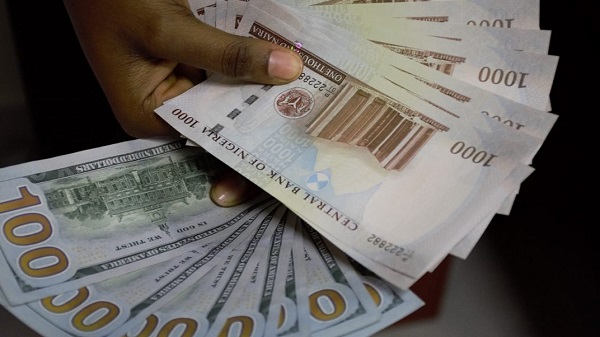…as global investors flock to equities, bonds
Nigeria’s foreign exchange market witnessed a sharp deceleration in capital inflows in August, even as global investors stepped up allocations to equities, bonds, and commodities amid shifting expectations of monetary easing in the United States and Europe.
Data from FMDQ show that total inflows into the Nigerian Foreign Exchange Market (NFEM) dropped by 26.9% month-on-month to $2.80 billion in August, down from $3.83 billion in July.
Both foreign and domestic contributions contracted, underscoring the fragile balance of capital flows sustaining Africa’s largest economy.
Foreign inflows, which accounted for 38% of total receipts, slumped to a four-month low of $1.06 billion, a steep 61% decline from July levels.
The pullback was led by foreign portfolio investors (FPIs), whose participation contracted by 65.8% m/m, and by foreign direct investors (FDIs), which fell by 25.2%.
This weakness was only partially cushioned by a surge in flows from other corporates, which more than doubled during the period.
Domestic inflows, still the bulk at 62%, also faltered, declining 17.9% to $1.74 billion.
Exporters and importers cut back their activity by 32.8%, while non-bank corporates contributed 32.7% less than in the prior month.
The slack was offset by notable gains from individuals (+413.8%) and the Central Bank of Nigeria (+118.9%), which together kept the decline from being more pronounced.
Despite the contraction, analysts at Lagos-based Cordros Research project that inflows will remain resilient in the months ahead, surpassing 2024 averages.
They cite attractive naira yields for foreign investors, improved market sentiment, and stronger non-oil export receipts as potential tailwinds.
Reserves provided some reassurance, rising for the ninth straight week to $41.46 billion as of September 2.
Yet in the forwards market, the naira weakened across contracts, sliding 0.4% to N1,572.31 per dollar on the one-month tenor and losing as much as 3.8% on the one-year.
The weakness in Nigeria’s inflows contrasts with a buoyant global backdrop. Investors poured $10.65 billion into global equity funds in the week to September 3, according to LSEG Lipper—the largest haul since mid-August.
The rally was underpinned by growing conviction that the U.S. Federal Reserve will deliver a quarter-point rate cut this month, a move markets now price with 99.7% probability, and by a favorable antitrust ruling for Alphabet that lifted sentiment in technology stocks.
By region, European equity funds drew $3.85 billion, Asian funds $3.3 billion, and U.S. funds $2.42 billion.
Technology topped sector allocations with $1.87 billion, while financials and gold-linked funds also attracted strong demand.
Commodity funds tied to gold and precious metals pulled in $5.2 billion—the largest since at least November 2021.
Bond markets remained in vogue, with global bond funds extending their 20-week streak of inflows, totaling $18.74 billion.
Money market funds saw an even bigger surge, with $57.6 billion in fresh allocations.
For Nigeria, however, the divergence is telling.
While global investors are rebalancing portfolios to risk assets on expectations of looser monetary policy, the sharp fall in FPIs and FDIs signals lingering caution over local risks—from currency volatility to policy uncertainty—that continue to blunt the country’s ability to attract international capital.















